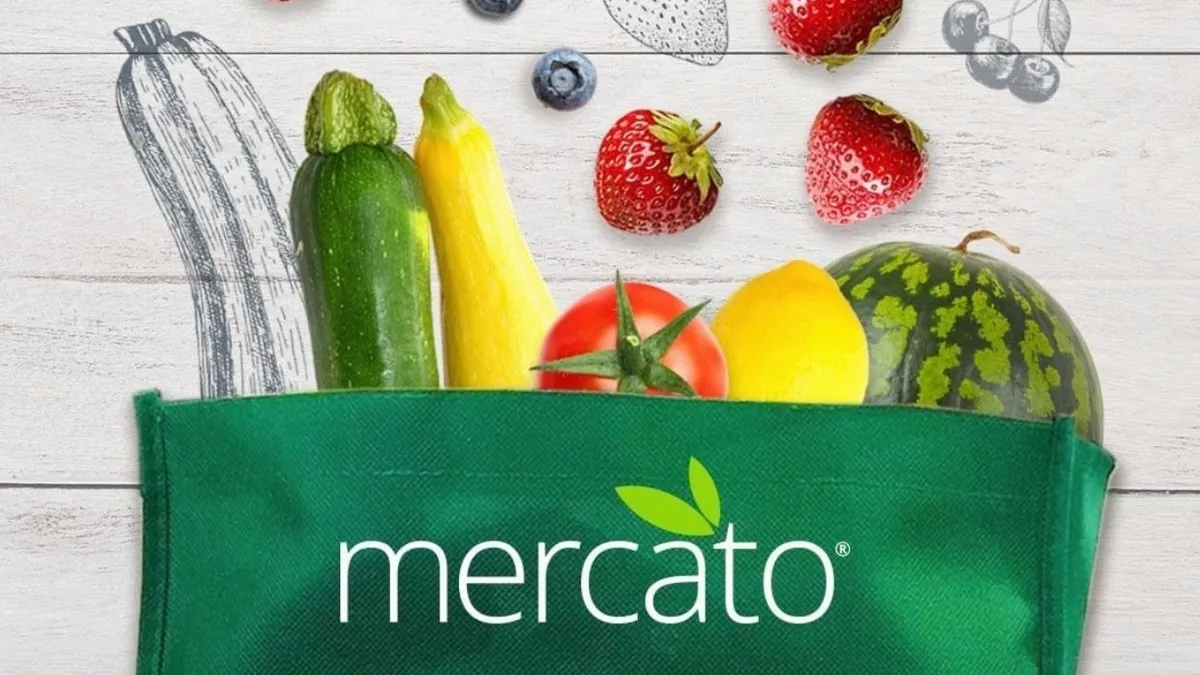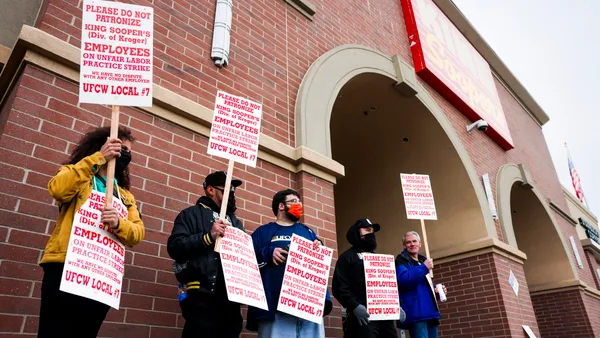Dive Brief:
- Online ordering and delivery company Mercato recently closed a funding round — reportedly $4 million — to help it expand into new markets throughout the U.S..
- Mercato's e-commerce platform is designed specifically for independent grocers and specialty food retailers. Capabilities include inventory and price management, customer communication and product and pricing analytics.
- Mercato has a national courier network that provides delivery service within a 15-mile radius, including same-day delivery. It currently serves over 750 retailers in markets in California, Colorado, Illinois, Massachusetts, New York, Pennsylvania, Texas and Washington, D.C.
Dive Insight:
With high-end clients like Chelsea Market, Cowgirl Creamery, Santa Monica Seafood and Union Market, Mercato is focused on the upscale specialty foods sector, where food-focused independent operaters are often too small to maintain their own tech services.
Mercato is also honing in on the "shop local" concept, making it easier for more shoppers to take advantage of e-commerce while still supporting local brands and businesses. Mercato’s founder, the son of an independent butcher in Brooklyn, and said his goal is to even the playing field for independent grocers and help customers find local grocers.
With its new funding, Mercato can bring the platform to new markets and make improvements to appeal to more retailers. Some independent grocers may be put off by the cost of e-commerce fulfillment. Others may eschew e-commerce because they prefer to cultivate a personal rapport with their customers through in-person interactions. The online growth of competitors like Whole Foods and The Fresh Market, however, means independent grocers increasingly can't afford to sit on the digital sidelines.
Independent grocers can attract new customers through Mercato's app, which promotes discovery of local specialty stores. Consumers can add items from multiple stores to the same order while scheduling either in-store pickup or delivery. Additional app-based features include one-click reordering, a referral bonus program and kitchen hacks and recipes.
As Mercato hones in on niche markets, Walmart and Amazon continue to vie for the top spot in digital grocery dominance, with Kroger, Costco and Target close behind. Instacart is the dominant e-commerce platform for grocers that don't have their own capabilities, while Shipt continues to expand under Target's ownership. As fulfillment becomes more competitive, online providers have lowered their fees.












